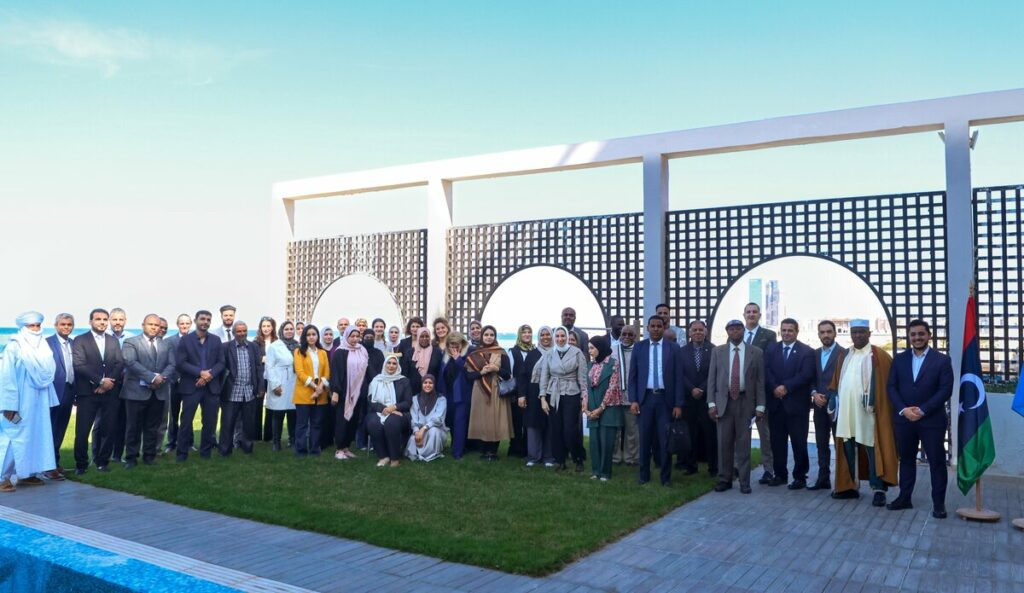TRIPOLI, Libya, 28 October 2024-/African Media Agency (AMA)/– Over three days in Tripoli, community leaders, civil society organisations and youth representatives from Ubari and other parts of Libya came together with UNSMIL and the Ministries of Defence, Local Government, Labor, Youth, Tourism and Traditional Industry to share experiences and develop innovative ways to prevent and combat violence in the community through local initiatives.
As part of UNSMIL’s effort to pave the way to disarmament, demobilization, and reintegration (DDR) mandate in Libya, the Mission brought together local leaders with 37 civil society actors and youth from areas including Murzuq, Sebha, Zwara, Sabratha, Bani Walid, Benghazi and Tripoli to identify the root causes of violence in the Ubari community. The participants also discussed the challenges to community cohesion, ensuring an inclusive and integrated process with the broader peace and security efforts.
“We hope that Ubari becomes the higher symbol for peace in Libya,” said one female participant, as she presented her final thoughts on day three of the workshop, where she highlighted the role women play in their communities and reducing violence.
The workshop sought to design locally-led community violence reduction solutions which strengthen resilience and cohesion. This initiative is being piloted in Ubari following a request by the Tuareg community in discussions with the Mission where they highlighted the fragility of the current peace in the region, and stressed that future conflicts a real possibility during heightened tensions around the economy. They also made clear the impact of this on youth, with young men in particular engaging in smuggling and trafficking and being more likely to join armed groups. If successful, the CVR model could be implemented in other areas across the country by the Mission and partners with support of local stakeholders, including Ministery of Local Government.
Participants engaged in guided discussions and where they worked on conflict analysis, shared their knowledge and insights from other successful initiatives, and also discussed their assessment of the current security situation in Ubari.
“Security can only be achieved through disarmament because of the proliferation of arms which poses a major threat to security even with the current decline in tribal tensions or social grievances in Ubari,” said another female participant.
Participants identified issues around political divisions, tribal tensions, displacement, economic grievances, lack of healthcare services and medication, recruitment of youth in armed groups, smuggling and trafficking, fuel shortages, high living costs and a lack of basic commodities as key to the community tensions.
“Youth require guidance,” said one male participant as he summed up the discussions of the workshop. “They need investment so that they can have positive influence on the country,” he added.
All the issues highlighted were discussed with the ministries engaged in the workshop and relevant institutions discussed the launch of a youth centre and traditional industry centre in Ubari to support the community.
Local communities are key to putting an end to conflict, said Aicha Kort, DDR Officer at UNSMIL who facilitated the workshop: “I am grateful to all the participants for engaging so thoroughly with the process. We intend to take the findings of this workshop and design a pilot community violence reduction strategy for Ubari to be implemented in the coming year, leveraging synergies with other projects and partners.”
Distributed by African Media Agency (AMA) on behalf of the UNSMIL.
The post Local leaders and youth develop a pilot community violence reduction programme for Ubari appeared first on African Media Agency.
Source:: African Media Agency2







